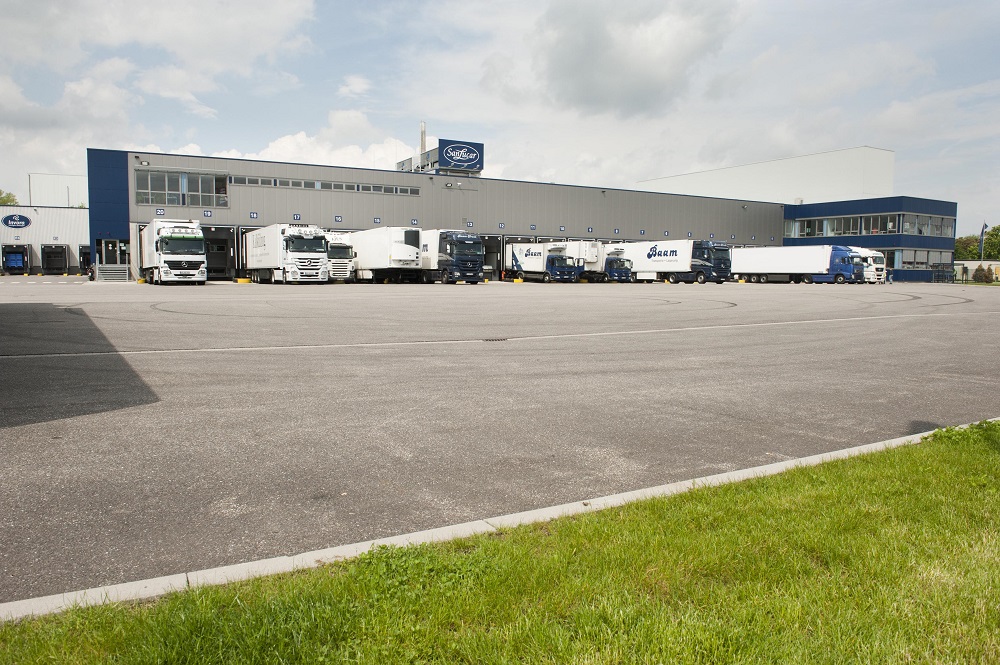The latest Barclays-BDO Logistics Confidence Index has fallen to its lowest ever level since the survey began in 2012 as the sector deals with the fallout from the pandemic, skills shortages and concerns over Brexit. The survey assesses the expectations of more than 100 senior decision-makers across the sector.
• Confidence index falls to lowest level since survey began in 2012 as the sector deals with the fallout from the pandemic, skills shortages and concerns over Brexit
• Some bright spots – nearly half still expect profits to increase next year and those focused on e-commerce/last mile deliveries have fared better
• Technology is being increasingly deployed to address challenges facing the sector and over two thirds are investing in sustainability
• Consolidation is on the cards with nearly 40% considering acquisitions in next 12 months
The Confidence Index has fallen from 49.7 in 2019 to 47.1 this year, continuing the downward trend seen in recent years and taking the score to its lowest level since the survey began in 2012.
This fall in confidence comes against a backdrop of unprecedented domestic and global uncertainty created by the pandemic, in addition to ongoing concerns over the UK’s future relationship with the EU and the continuing skills shortages.
The Index number, however, masks the high degree of polarisation in the views of operators, with results differing depending on the sectors they are most exposed to. A third of operators reported current business conditions as either the same or more favourable than 12 months ago, despite the economic disruption. Those focused on e-commerce and last-mile deliveries have fared relatively well, while others operating in manufacturing sectors, such as automotive, aerospace, oil and gas saw unprecedented levels of disruption.
The results are similar when asked about which industries are providing the greatest business opportunities in 2021 with more than a half of the operators surveyed (55%) saying online retail, 32% saying manufacturing and only 6% of respondents highlighting the automotive sector. This reflects how changes in consumer buying habits away from bricks and mortar stores to online purchasing and manufacturers direct selling have been exacerbated by Covid-19. To illustrate the impact of Covid-19 on the sector, the vast majority of respondents (94%) stated that they have utilised the government’s Job Retention Scheme and staff furloughs to help them through the pandemic.
In keeping with other industries such as retail and hospitality, the adoption of technology to address business challenges has rapidly accelerated this year. To help overcome talent shortages, more than two fifths (42%) of operators stated they are using technology to replace human talent. Meanwhile, many businesses are continuing to invest in sustainability with more than seven in ten (72%) putting funds into green-related projects over the next 12 months.
Looking ahead, there is cause for cautious optimism. Logistics continues to be a strong and resilient sector and remains a major contributor to the UK economy. The total combined UK revenue for the 100+ companies surveyed is £16.4bn and, even under the current highly uncertain economic conditions, nearly half (49%) of them say they still expect to see profits increase over the next 12 months. In the context of a changing market, it is perhaps no surprise that M&A is in the plans of many companies, driving many to adapt by extending existing service offerings or targeting new customer markets or industry sectors. The number of companies expecting to make acquisitions is close to the all-time high of 2017, with 38.9% of respondents saying they are likely to make an acquisition within the next 12 months.
Ian Cranidge, Head of Transport & Logistics at Barclays Corporate Banking, said: “2020 has been an unprecedented year – never has the industry faced such a plethora of multi-faceted challenges. However, longer term this is an extremely resilient sector which is ready to bounce back once the pandemic passes. Businesses are using this challenging period to build back better, by investing in technology and sustainability. The present is undoubtedly tough, but we can look to the future with optimism.”
Jason Whitworth, Partner, M&A Advisory and Logistics & Supply Chain Management at BDO LLP, said: “As we stand today, it feels like we are still in the eye of the storm in terms of uncertainty. Given this, it is no surprise confidence is low. The pandemic highlighted the vital nature of an effective supply chain, and this survey demonstrates the sector’s resilience and adaptability. Encouragingly, the responses reveal a continued appetite to invest for the future – searching out new markets and added value services, developing technology, automation and sustainability projects, and attracting, training and retaining good people.”







